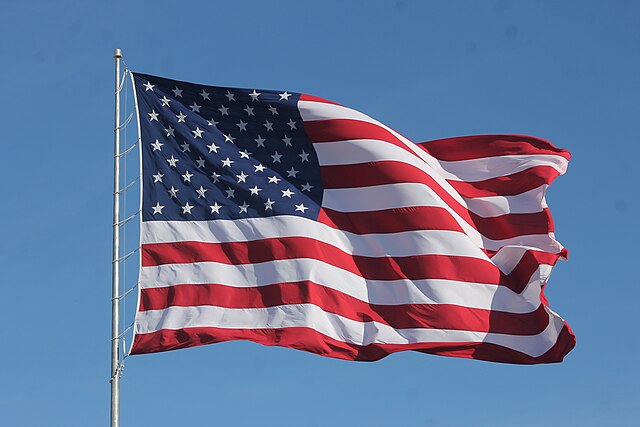How do Americans define themselves?
Is it religion? Race? Culture? Perhaps it’s a blend of all three or something completely different. Maybe you consider yourself an American because you were born in the U.S. Maybe you do so because you served in the U.S. military. Maybe it’s just because everyone else does, and from a young age, that’s what you’ve been told. For me, being an American is having a democracy.
Have you ever stopped to think about why people pride themselves on being an American? It seems unfathomable for the youth right now to boast about living in this polarized, corrupted country, but there was once a vision for American culture — a vision of diversity, inclusion and hope.
American identity starts with the group of people whose land we are all currently standing on — Native Americans and Alaska Natives. The various tribes that lived in the U.S. before the U.S. was even a country have a rich culture rooted in tradition. With spirituality connected to the land and oral storytelling passed from generation to generation, Native Americans have paved the baseline for American culture. The identity that the colonizers took while adapting to America was a blend of Native and European ideals. They adopted and stole many beliefs and skills, but they also continued to hold some of their beliefs from their old country — the beginning of what it truly means to be an American — having a complex identity.
America has undergone many different versions of itself over the years. As humans leave and enter the country, races of all kinds settle in one geographic location like never before. This is not to discredit the decades of slavery, inequality and hardships that many people of color have had to face while living in this country.
Yet there was an idea — an American dream — that lived off in the distance, drawing people in from virtually every country to pursue. The hope for equality and freedom — the chance to live in a country that is growing for the better and the opportunity of stable jobs and families lived on the horizon of tomorrow. The American dream was the ability to work a minimum-wage job and feed a family. It was to have a white picket fence and two children — to live in a country that had openly struggled with race, religion and gender equality but gave citizens the right of democracy.
It is no secret that America’s past is far from clean, but it is also no secret that there was a flashy appeal of the possibility of wealth and justice, painted in red, white and blue. An American is a dreamer — someone who is not defined by one culture, idea, religion or sex. It is the ability to speak back to your government when justice is tested at the hands of corruption.
In a time where every day feels like we are living a major news headline, it is difficult to pride yourself in American culture. Our country has been torn to shreds by political polarization, and it is understandable to be disgusted by the way things are currently being run. However, I urge you to think back to the American Dream — that fuzzy promise of a better tomorrow.
A country with as many cultures blended into one has the potential to be a true place of inclusion. America should be a positive and rich region where individuals merge and share values, food, customs and beliefs, not a home to hate.
What many people used to claim as the reason they are American — democracy, freedom, inclusion and hope — has been replaced by political affiliation. When will we learn you cannot root your morals in political parties? When will we realize that choosing red or blue tears the flag in half?
This polarization has caused Americans to lose their identity and sense of democracy. If we cannot get past this division, then we can no longer progress as a society.
It may sound naive, but identity can be reclaimed in the face of adversity. American identity is not lost — it’s waiting for people to realize that unity was always stronger than division.
Faith Richardson likes to write about student life, the arts and the media. Email her at [email protected].

